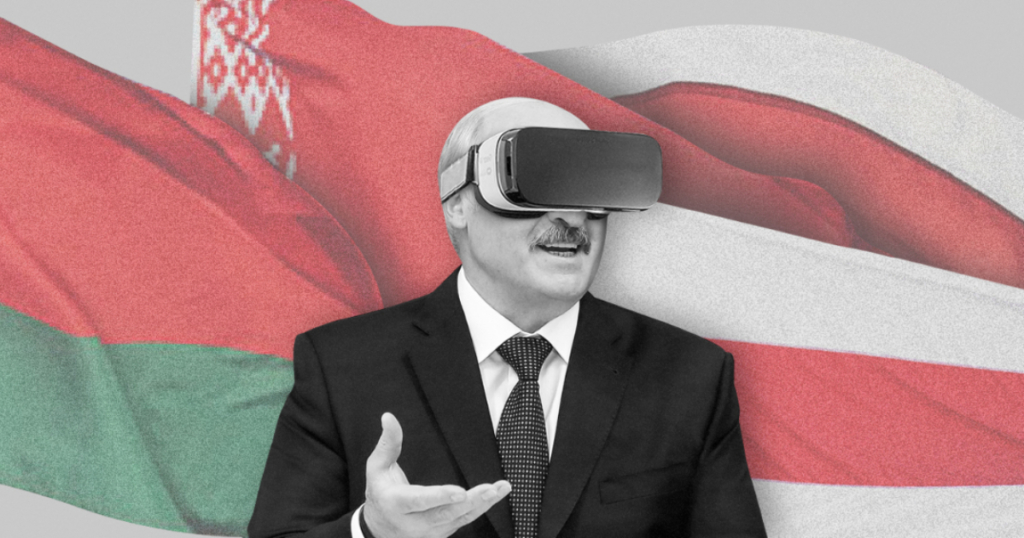
The future of Belarus’ IT sector hangs in balance amid protests
Tens of thousands of people protested Sunday across Belarus against President Alexander Lukashenko, the third consecutive week of demonstrations following heavily rigged elections. The country’s IT sector — famous for nurturing companies like World of Tanks and Viber — has traditionally kept out of politics, but they are now openly supporting the opposition. Why has the sector turned against Lukashenko? The Bell reporter Anastasia Stognei went to Minsk to find out (you can watch a Russian-language video report from her trip here).

The widely successful Belarusian IT sector
- The Belarusian IT sector is the only part of the economy to post any significant growth in recent years. This success — achieved despite Lukashenko’s moniker as the ‘Europe’s Last Dictator’ — have been widely reported on around the world, including by The New York Times, Forbes, The Financial Times and Wired. Major tech brands from Belarus include popular online game World of Tanks, and messenger Viber.
- Between 2017 and 2019, IT service exports from Belarus increased almost 150 percent to be worth $2 billion, and, last year, tech companies accounted for almost 50 percent of the country’s GDP growth. At the moment, the IT sector in Belarus accounts for up to 6.1 percent of the country’s GDP (in Russia, it’s less than 1 percent).
- This IT fairytale began with outsourcing: EPAM is the best-known IT outsourcer to have Belarusian roots. It was set-up in 1993 by Arkady Dobkin and Leonid Lozner, two classmates from Minsk, and is now traded on the New York Stock Exchange.
- The country’s IT boom was really kick-started by a hi-tech park (PVT). This is not a physical ‘Silicon Valley’ like in California, more a system of financial support for IT firms. In July, there were 886 companies in the PVT employing more than 63,000 people. EPAM’s Dobkin is one of the biggest cheerleaders for the project.
- In recent years, Lukashenko has claimed credit for the success of the IT sector. But businessmen and economists who spoke to The Bell were unanimous: the most Lukashenko has done for the sector was to leave it in peace (in contrast to the rest of the country’s command economy, which is de facto under his personal control).
- Why did Lukashenko let this happen? There are different theories. “He simply failed to understand what it was and how it could become such a cool industry,” said Maria Kolesnikova, a senior opposition figure and the chief of staff for presidential candidate Viktor Babariko who is currently under arrest. Others point out that, 15 years ago, the IT sector was too small to be taken seriously and nobody imagined it could become such a hotbed of independent thought. A third explanation holds that, in 2011-2014, Lukashenko was eager to change the climate for Belarusian business and reduce its dependency on Russia — so he allowed the growth of the IT sector as a counterbalance.
Supporting the anti-Lukashenko protests
- For many years, there was no desire for political change among Belarus’ IT workers — but all that changed this month. For many Belarusians, not just in the IT industry, the pandemic was the last straw (Lukashenko dubbed the virus “corona-psychosis” and tried to ignore it). With the illness spreading rapidly, people found their own solutions and businesses began to organize themselves, creating mutual support groups, providing food for medics and printing masks on 3D printers.
- Amid the current protests, IT entrepreneurs have raised money for people detained by the police, and hired and retrained activists who lost their jobs. At rallies, you can see people carrying keyboards painted in the white-red-white flag of pre-Communist Belarus. Mikhail Chuprinsky, founder of robot manufacturer Rozum Robotics said there are many IT workers among the protesters. He said this was “simple economics”: on an IT worker’s salary, it’s no hardship to go on strike.
- “Everyone I know wants to do something to help,” said Mikita Mikado, founder of software company PandaDoc. He has promised financial help for those who want to resign from the security forces. Rozum Robotics, meanwhile, is hiring people from small towns who were fired after participating in protests.
- Some IT workers were mobilizing against the government even before the current protests. Several start-ups were created to monitor the elections: Golos for checking the vote count; Bison for collecting data on poll violations; and Honest People to collate witness testimony on election day. These all gained millions of users in a matter of days, something far beyond most commercial start-ups.
- Like all Belarusians, IT specialists saw at first hand the violence used by security forces against protestors. Rozum Robotics’ Chuprinsky said he was beaten up when he spent several days in police custody. Riot police yelled at him: “How much did they pay you, bitch? How much do you earn? Isn’t that enough for you? If you want change, here’s some change for you!” as he was assaulted, he said. The entrepreneur recalled how people were beaten up continuously in jail, their cries continuing through the night.
On leaving prison, Chuprinsky thought about leaving the country. He was far from alone. Everyone who spoke with The Bell was unanimous: if Lukashenko remains in power, the IT sector in Belarus is finished. Almost every business is currently making plans to relocate. Staff working at IT giant Yandex in Belarus are beginning to relocate to Russia, while Viber has announced the closure of its Minsk office. “If we don’t win this battle, Belarus will be rolled into the asphalt,” said protest leader Kolesnikova.
Why the world should care Belarus’ IT sector is unique: it’s the only part of the economy in which the country can take genuine pride. If Lukashenko cracks down hard to quash the protests and cling onto power, the country’s IT industry will surely fall apart — and that would be a catastrophic blow.




